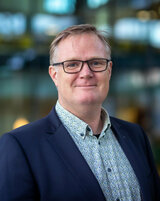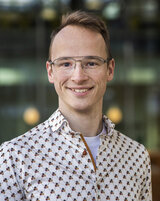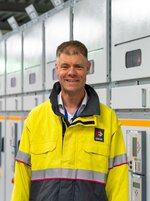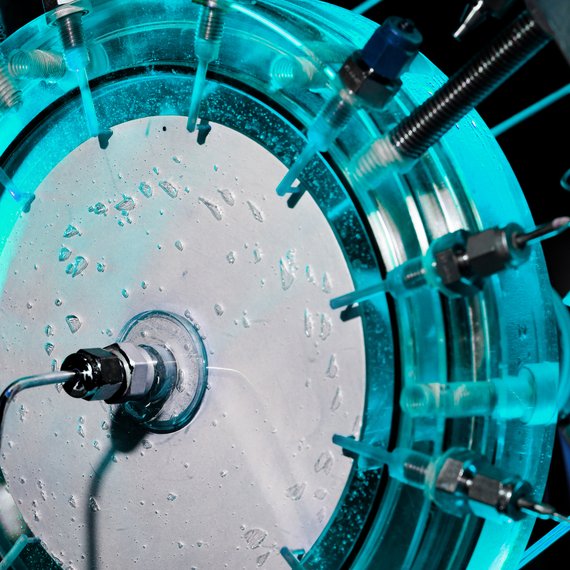Date
Thursday March 21, 2024 from 1:30 PM to 5:00 PMLocation
TU/e campus, Filmzaal, Zwarte Doos buildingCo-organizer
Team EnergyPrice
Free
Due to great interest the EnergyDays are sold out!
Net congestion: clogged grid, what's next?
Date
Thursday 21 March 2024
Location
Filmzaal Zwarte Doos, TU/e campus
Organized by
Eindhoven Institute for Renewable Energy Systems (EIRES)
Introduction
In large parts of the Netherlands, the electricity grid is congested. The infrastructure is sometimes old, the net not flexible enough and the large-scale electrification keeps on increasing pressure. This is a serious problem for companies, households and the energy transition as a whole.
What needs to be done to solve this problem? What is the role of politicians, network operators, and what can researchers do to help address the net congestion? In this edition of EnergyDays different perspectives will be discussed.
Program
13h30 - 14h00
Walk-in with coffee and tea
14h00 - 14h10
Word of welcome and introduction
Christina Papadimitriou | EIRES & Eindhoven University of Technology
14h10 - 14h50
The Electricity System: Will network capacity scarcity be part of the new normal?
Koen Kok | Eindhoven University of Technology
14h50 - 15h30
Break
15h30 - 16h10
Tackling netcongestion with data-driven energy orchestration
Bram Cappers | Tibo Energy
16h10 - 16h50
Congestion in the Dutch electricity grids – causes and mitigating measures
Han Slootweg | Enexis & Eindhoven University of Technology
16h50 - 17h00
Wrap up and closing reflection
17h00 - 18h00
Drinks
Abstracts
KOEN KOK | Professor Intelligent Energy Systems Eindhoven University of Technology
The Electricity System: Will network capacity scarcity be part of the new normal?
Capacity shortages in the Dutch electricity grid are almost constantly in the national news nowadays. The situation is triggering a hugely increased effort to reinforce the grid: network investments are up by an order of magnitude. Further, it triggers innovation, companies unite to share network connection capacities through energy hub concepts and local marketplaces, while network operators develop new contract forms and tariff mechanisms.
For the longer term a few questions remain unanswered:
- Will network capacity shortages become a thing of the past after the network investment wave currently unfolding?
- Will the current speedy innovation wave yield future-proof mechanisms to deal with congestion?
- Will the current measures be fast enough, or do we need to save energy in a hurry soon to keep the lights on?
In his talk, professor Koen Kok will try to provide answers to these questions.

Koen Kok is Professor Intelligent Energy Systems at the Electrical Engineering Department of the Eindhoven University of Technology. He has extensive research experience applying intelligent and distributed software technologies in energy systems. He was among the European smart grid pioneers, with involvement in early developments and field deployments. Currently, he is scientific director of the MegaMind research program on technical, legal and ethical aspects of Artificial Intelligence applied in the electricity system’s edge. Further, he leads numerous research projects in the field. Application of intelligent software in the operation of (local) electricity systems and in market trade, against the background of the unfolding energy transition, is a key focus of Kok and his team. Key results have been field deployed, commercialized and/or made available in open-source.
BRAM CAPPERS | Co-Founder of Tibo Energy
Tackling netcongestion with data-driven energy orchestration
Netcongestion has become a serious problem in the region. During the day, solar panels are tuned off to avoid the overload of the physical grid while in the evening fossil-fuel stations are used to compensate for any shortages. Companies are leaving our country, because they can no longer grow while thousands of them are waiting for additional capacity from the net. But are there other solutions besides expanding our grid?
In this presentation we show how we can use computer- and data science to better orchestrate energy in power networks enabling energy sharing and collaboration between companies through Energy Hubs.

Bram Cappers is a teacher Visual Analytics in the Mathematics and Computer Science faculty of the TU/e. After finishing his master (with honors) he finished his PhD at the TU/e in the field of data visualization and anomaly detection on large data streams.
Bram has won numerous prices in the field of real-time computer science, entrepreneurship and data-science. With this knowledge he founded 2 companies CodeNext21 and Tibo Energy to make his new technology available for Industry.
HAN SLOOTWEG | Director of Asset Management, Enexis & professor in Smart Grids, TU/e
Congestion in the Dutch electricity grids – causes and mitigating measures
The demand for capacity of the electricity grid is surging. The Dutch network operators can not keep up and extend and reinforce the grid quickly enough. This leads to a shortage of network capacity and to network congestion, both for demand and generation. Requests for new grid connections and upgrades of existing grid connections can not be met and parties are referred to growing waiting lists with parties in need of grid capacity. The presentation will address the underlying causes of the growing grid congestion, as well as various approaches to deal with it.

Han Slootweg is part-time professor in Smart Grids with the research group Electrical Energy Systems at the TU/e department of Electrical Engineering. His main affiliation is with distribution network operator Enexis, where he is Director of Asset Management. In both roles he is involved in innovation and sustainability of the energy system, with special attention to the function of gas and electricity networks in the sustainable energy system of the future. Han sees the energy transition, the sustainability of our energy supply as the most important topic for the energy industry and his mission is to contribute to the transition towards a more sustainable energy system.
About EnergyDays
EnergyDays is organized every quarter of the year and are open for anyone interested in the latest developments in societal energy issues. EnergyDays focusses on a specific aspect of the present energy and climate discussion. Different keynote speakers from academia and industry will present their views, solutions and outlooks on the topic. The motto of EnergyDays is to stimulate the audience to broaden their vision on energy and climate.
- Read more about the previous edition here: 16 November 2023
- EnergyDays - all sessions
- Contact
Organization committee
Follow EIRES
- LinkedIN and stay updated
- Twitter and discuss with us
- Visit EIRES and learn more
- Watch EIRES and get inspired
- Sign up and become a contact
